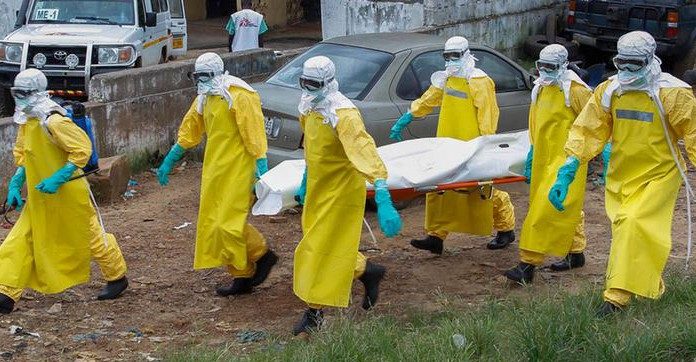
Ebola continues to spread in two “troublesome areas” in Sierra Leone and Guinea’s interior, a senior UN official warned this week, adding that additional foreign health care workers are desperately needed to tackle the epidemic
The death toll from the Ebola outbreak in West Africa has risen to 6,331 in the three worst hit countries, with Sierra Leone overtaking Liberia as the country with the highest number of cases, the World Health Organization says.
“We know the outbreak is still flaming strongly in western Sierra Leone and some parts of the interior of Guinea. We can’t rest, we have to still push on,” Dr. David Nabarro, the U.N. Special Envoy on Ebola, told a news conference in Geneva on Tuesday.
The first area of concern, Dr. Nabarro said, is western Sierra Leone, in particular, the capital Freetown, and Port Loko, where there are high levels of transmission and “a much more intense response” is needed.
While more treatment centers are scheduled to open in Sierra Leone, Dr. Nabarro said they are still in dire need of additional trained health workers to staff the clinics. “We don’t yet have the full number of functioning treatment centers and places where people who are ill can be kept away from others,” he said.
Dr. Nabarro explained the logistical difficulty of staffing the Ebola treatment units, which typically contain 300 beds and require some 300 people. The staff needs to change shifts every three to four hours because of the heat of the protective clothing, and each changeover is a dangerous moment, as is each interaction with patients, particularly with needles, he said.
The rise in the spread of Ebola in western Sierra Leone reflects the fact that tribal-led communities have yet to fully accept the outbreak and take action to avoid infection, Dr. Nabarro said. “There are reports coming through of places where people who are sick, staying at home and perhaps infecting their families.”
The second “particularly troublesome” area is the northern part of Guinea’s interior, a region known as Guinea Forestiere, where the epidemic began nearly a year ago, Dr. Nabarro said.
He said they have also been “working very closely with Mali to ensure cases do not cross the border and if they do, that they could be dealt with very quickly,” noting that he had been coordinating the response directly with the President of Mali, as well as with the UN peacekeepers stationed there. Mali has reported eight Ebola cases, six fatal, to date.
Meanwhile, in a message to a special meeting of the Association of Southeast Asian Nations (ASEAN) on Ebola preparedness in Bangkok, Thailand, the head of the UN Mission for Ebola Emergency Response (UNMEER), Anthony Banbury, drew attention to the need for more international responders to help fight the disease.
“We need logisticians, information management people, we need epidemiologists,” Mr. Banbury said. “In this war that we are fighting now, our most valuable soldiers are epidemiologists, people who can understand this disease, who can help us hunt it down, who can work in the villages and identify any new outbreak so that we can quickly respond and bring it under control.”
